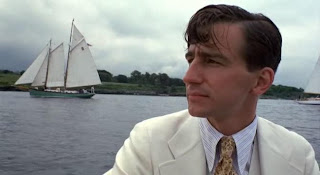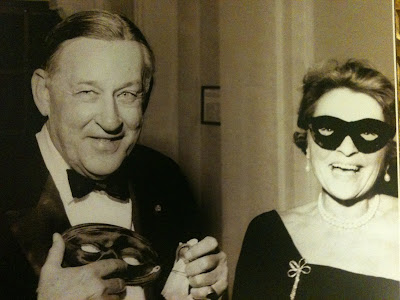
In her final days, my mother was surrounded by three generations of family who filled her small house with love, laughter and many, many tears.
Her adult life wasn't easy, which must have seemed incredibly unfair to the little girl inside. That girl had a mostly idyllic childhood in Camden, South Carolina.
Her father owned and trained Elkridge, one of the greatest steeple chasers in racing history.

My mom could do anything she wanted in Camden.
She won ribbons riding horses
She won trophies playing tennis.
She danced with beaus at cotillions
She lived in a huge house called Cool Springs.
She attended private schools with the town's richest children.
There was just one problem.
One day the money was gone.

What happened to the money isn't so clear but soon, it became obvious that the Millers would have to pull all their children out of their private schools. Mom would no longer go to school with the friends she met at horse shows, the dances and the tennis courts.
Perhaps not a big deal in a northern city, but in a small Southern town, it made all the difference.
On the public school bus, this little blond girl must have been steaming. It wasn't her fault the family had run out of money so why should she suffer?
When the bus stopped in front of her new school, Mom stepped down and began running. She ran past her brother and sister and raced down the street. She ran past the shops and past the library. She ran right up to the door of the private school, took a breath and swung the door open. There was nobody in the hallways so she walked straight back into her old classroom. She sat down at her old desk. She stared hard at the teacher just daring her to say something.
Nobody did.
Mom got to finish that school year at the private school

For Mom, money would always be an issue. Even after a divorce settlement considered generous by her own lawyer, she lived , in the best of times, paycheck to paycheck.
Lansing and I would live with our Dad in a New England saltbox with a swimming pool in a big backyard.
Then we'd live with Mom in small rental home with an old dodge dart in the driveway. There, in Sparks, Nevada, we qualified for a program that let us buy school lunches for 35 cents.

In our teens, we went to boarding schools with children whose families were among the richest in the nation.
Then we'd spend summers eating peanut butter sandwiches and working minimum wage jobs at casinos or restaurants.
(We had it easy compared to the miracle of our family, my sister Alyssa.)
Throughout it all, even in the worst of times, Mom had pluck.
After her memorial service, I visited her musty basement. In the corner I found an old Wilson tennis racket. On the handle she had stenciled two words.
CONCENTRATE.
ATTACK.

The little girl inside ,who could do anything she tried, would speak to her now and then.
After decades breathing in second hand smoke while dealing cards at Circus Circus,
Mom quit that miserable job and went back to school.
She graduated from the University of Nevada.
She bought a house across the street from campus.
That steel magnolia quality saw her through several bouts with cancer.
She fought even after her body gave out.
My God, she was so angry at her legs when they wouldn't let her get out of bed.
And I believe that spirit lives on.
Not just in the little house where tenants swear they hear someone playing a piano.
But in my own daughter, a competitive ball of fire named for the town my mom always thought of as home.
The night mom died, Camden says someone was in her room.
I'd like to think it was mom delivering two words of advice:
CONCENTRATE.
ATTACK.
I love you Mom and miss you more than I ever would have dreamed.










































